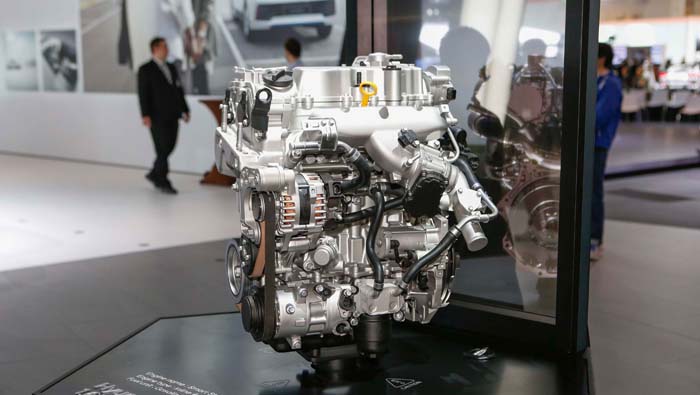
Frankfurt: Hyundai has unveiled its next-generation drivetrain technology, and announced bold plans for it first electric car-sharing programme, as part of its presence at the Frankfurt Motor Show in Germany.
Alongside the public debut of three new European-market models – the high-performance i30 N, the elegant five-door coupé i30 Fastback and the bold, sub-compact Kona SUV – the carmaker also revealed the first in its new ‘Smart Stream’ powertrain line-up, combining a Smart Stream 1.6-litre T-GDi engine and Smart Stream wet 8-speed dual clutch transmission.
The 1.6-litre T-GDi engine incorporates an array of new technologies, including Continuously Variable Valve Duration (CVVD), which continuously adjusts the inlet and exhaust valves’ opening times, optimizing the timing to suit all engine speeds and conditions. The technology maximizes performance and fuel economy, as well as reducing emissions.
CVVD provides an additional level of efficiency on top of advanced GDi fuel injection, which delivers highly pressurised fuel directly into the combustion chamber, rather than via an inlet manifold, and turbocharging, which uses a turbine to force additional air into the combustion chamber.
The engine is combined with the latest version of Hyundai’s dual-clutch automatic transmission. With quicker and smoother gear changes than its predecessor, the Smart Stream wet 8-speed DCT also contributes to lowered fuel consumption. Hyundai plans to continuously introduce more ‘Smart Stream’ badged powertrains in the years to come.
“Hyundai is committed to sustainable motoring and is expanding its range of electric, hybrid, and fuel-cell vehicles, but we must also recognize that for the immediate future most new cars will continue to be powered by internal combustion engines,” said Hyundai’s Head of Operations for Africa and the Middle East, Mike Song. “As part of the transition, we must ensure that our petrol engines are as efficient as possible, by using the best available technology, reducing fuel consumption and tailpipe emissions.”
The advanced internal combustion technology is deployed alongside Hyundai’s growing range of alternative drivetrains and is in keeping with the company’s ambition to create a clear and practical pathway to eco-friendly motoring.
Also at Frankfurt, Hyundai announced another significant step in those plans – the company’s first car-sharing scheme for pure-electric vehicles. To be launched in Amsterdam in October, the scheme will use a fleet of 100 Hyundai Ioniq Electric cars, aiming to democratise e-mobility.
The Ioniq is Hyundai’s first model developed specifically for alternative drivetrains and is the first car in the world to offer buyers a choice of hybrid, plug-in, or pure-electric drivetrain options. Hyundai was also the first company to introduce a fuel-cell electric vehicle, with the Tucson FCEV in 2013 and has successfully offered hybrid versions of the Sonata internationally.